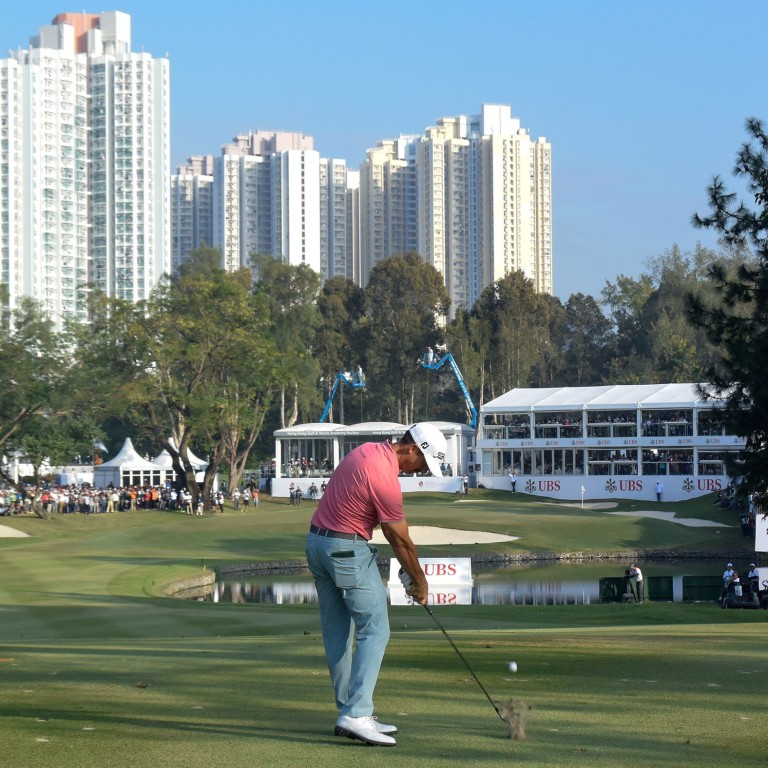
History counts for nothing as already besieged Hong Kong Golf Club is now forced to put flagship event on ice
- Having already surrendered one of its three courses to housing, the club now becomes a victim of violent protests
- Uncertain future for venerable golf tournament as the European Tour postpones 60-year-old event amid security fears
Amid everything else that is happening in Hong Kong, the news solicited little more than a knowing shrug. In reality, it would have been next to impossible to hold the event given the ominous infrastructure and security issues.
So why is it even remotely significant that a professional golf tournament has been postponed in Hong Kong? Because landlords are still demanding rent payments and banks are still collecting interest on loans. Because people are still trying to go to work, if they can get there, and some kids are still going to school. Because there is no time out from reality for the rank and file in Hong Kong, where we are all in dire need right now of any distractions and vestiges of normalcy.

Of course, how much “normalcy” a golf tournament on a highly contentious golf course can bring is a subject for great debate. But isn’t it wonderful that we are still free to disagree? Enjoy it while you can.
Everything about this event and this golf course is layered. Six years ago, there were a few strategic voices calling for the government to take back the sprawling land that the Fanling course sits on for public housing. Almost on cue, then Secretary for Development Paul Chan Mo-po, himself embroiled in a land scandal, said that might be a good idea.
After all, it was low-lying populous fruit going after all the “elitist” members of the venerable golf club that annually plays host to one of Asia’s oldest and most prestigious golf tournaments.
But if only it was that simple. “Land policy is a very complex issue in Hong Kong,” Christine Loh Kung-wai, chief development strategist at the Hong Kong University of Science and Technology and the city’s former undersecretary for the environment, was quoted as saying earlier this year. “Income inequality is not going to be solved by snatching some land from the golf course.”
Still, when the dust finally cleared last February, the government announced it would take one-fifth of the 172 hectares as a short-term option to help alleviate the chronic housing shortage. The club had no choice but to sacrifice the century-old Old Course, one of three it operates.
Political points scored, Chan had long moved on to another land scandal and in the time-honoured tradition of Hong Kong government accountability, he was eventually kicked further upstairs and named the current Financial Secretary.

Because the club is anxious to maintain an event that along with the Masters at Augusta is the only professional tournament to be held continuously at the same venue for more than half a century, they sent an email to members claiming this is merely a “postponement” and that they are working to reschedule the tournament early next year. Postponed could easily become cancelled because there are few windows of opportunity.
Although other events with more community participants, like Oxfam Trailwalker and Clockenflap Music Festival, have also been cancelled, the Hong Kong Open has global visibility.

Golf is hardly the most inclusive sport in the world, but it does have a decent following and TV presence. Global audiences watched this tournament and saw Hong Kong and that invaluable exposure is incalculable. Viewers may not be coming here to golf, but come many did.
The Hong Kong Open was an integral part of the fabric that put the special into Special Administrative Region and helped define that unique, avant-garde blend of east meets west. What a run it had. Bruised and dinged, it would be a shame if it’s over.

